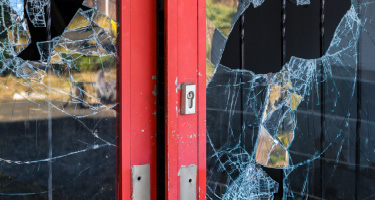No matter which side of the courtroom an attorney typically finds themselves, all can agree that domestic violence causes harm. It weakens marital bonds, causes family strife and dismantles hard-earned trust in relationships. Victims of abuse experience feelings of powerlessness, a loss of agency and loneliness from being unheard.
The Colorado Legislature has enacted several laws regarding domestic violence cases in response to these harms. For example, law enforcement "shall" arrest a suspect if there is probable cause to believe domestic violence occurred. When it comes to domestic violence protection orders, Colorado courts can add a litany of restrictions that wouldn't otherwise be ordered in other types of cases. Colorado also has strict laws about what kind of resolution parties in domestic violence cases can reach, prohibiting a plea agreement to a non-domestic violence crime unless prosecutors can’t prove an “intimate relationship” or make a “good faith representation” that they can’t establish a prima facie case of domestic violence at trial. §18-6-801(3), C.R.S.
All of these laws, in some way, create government actions to protect the victim. But what if the victim doesn’t want protection?
Some may argue that a prosecutor's demand for these protections, even against a victim's wishes, is justified because prosecutors are supposed to represent "the people," not the victim. But in 1992, the Colorado Legislature muddied those waters by enacting the "Victim's Rights Act," a law assuring that victims of domestic violence would be "protected by law enforcement agencies, prosecutors, and judges in a manner no less vigorous than the protection afforded criminal defendants." This language highlights a victim's voice as the focal point of the system's protection. When a victim requests dismissal, however, prosecutors often ignore it. None of Colorado’s laws aimed to protect against domestic violence limit a prosecutor’s power to dismiss a case per the victim's request. Nonetheless, a victim’s choice not to go to trial is treated in a manner “less vigorous” than the defendant’s choice not to go to trial. After a while, repeated disregard of a victim's input starts to take its toll. The victim soon feels powerless, controlled and unheard, which are the very mentalities victim’s rights legislation seeks to remedy.
Many prosecutors assume that behind every victim’s request for dismissal is a psychopathic defendant, controlling and using the victim as a pawn to get the case thrown out. No one is arguing this has never happened, but hyperbolizing the frequency of it pressures prosecutors to be wary of trusting any witnesses, including victims. Consequently, victim requests for dismissal are hastily written off without consideration for the many genuine, justifiable reasons behind them. One of those reasons could be that the allegations simply didn't happen. If a victim played a bigger role in the offense than originally reported, they may feel remorse or anxiety and want it all to go away. For some couples, especially those with no criminal history, the night of the incident may have been an all-time low that they’re working through, and they are afraid that further court appearances will disrupt the forgiveness and reconciliation they've found. Or the importance of keeping the family intact and ensuring a child's relationship with both parents may outweigh the desire to prosecute. Perhaps a victim has always felt safe around the defendant and just wants their partner to return home. It’s also possible that a victim simply wants to avoid being examined at trial altogether, either because of a fear of public speaking or because they know their prior criminal convictions will be mentioned. Finally, a victim could want the case dismissed because they feel they’ve been forced to falsely identify with a "helpless victim” narrative. No one wants to cooperate with a system they don’t trust or be examined by a prosecutor who has ignored their input.
Prosecutors must recognize that abuse victims don't just want their physical well-being to matter. They want their voice to matter. They want to feel some semblance of control over their decisions in life. Treating a victim as "unfit" to make their own decisions more closely resembles a conservatorship than a relationship honoring their input.
The rhetoric surrounding victims' requests for dismissal or leniency has become so savior-oriented that neither the victim nor "the people" are being served. Instead, prosecutors seem to blindly follow the groupthink that every victim who requests dismissal must only be doing so because the defendant has brainwashed them, that no victim of domestic violence who requests dismissal could know what's best for them and that the only way to punish uncertain future abuse is to trample over victims' voices, disenfranchise their autonomy and snatch away their freedom of choice while continuing to plow onward toward an unwarranted, re-traumatizing trial.
It's understandable that prosecutors want to be protective heroes. Even an erroneous belief that one is rescuing a weak, helpless victim from a certain "villain" can boost ego and self-esteem. The last few decades of American movies and television have presented prosecutors as heroic do-gooders of justice with outstanding courage and integrity. Nonetheless, classifying controlling prosecutors as "protectors" doesn't support victims. It cheapens the concept of heroism while perpetuating the cyclical disempowerment of those who've been unheard. In a criminal courtroom, the "hero" is not someone who rescues non-consenting victims from a fictional demise. It's the lawyer whose practice surpasses the limits of groupthink and endures real sacrifices to help others. Or a victim who bravely dissents the unwanted prosecution of their case, knowing their attempts at self-agency will likely be disregarded.
And so, it's time for a good dose of liberation.
Prosecutors must be liberated from their absolutist belief that victims who request dismissal are merely pawns of a saboteur rather than strong, autonomous individuals. Prosecutors must also be liberated from stringent office policies limiting their statutory power to honor a victim's dismissal request. Once prosecutors escape their biased indoctrinations, victims of domestic violence can be liberated from the forced protections that silence and disempower them. Hopefully, with some effort, the rights found in the Victim's Rights Act—to be treated with respect and dignity, to be heard and to be assured that government agencies will take "appropriate action" to ensure a fair resolution of the proceedings—will finally be fulfilled for all victims, including those who don't even wish to be victims.

Megan Bishop is an associate attorney with McDermott Stuart & Ward LLP, a Colorado-based criminal defense and plaintiff civil litigation law firm. Before entering private practice, she served her community as a Colorado State Public Defender. Her criminal defense practice is award-winning, including a passion for representing clients in DUI litigation, including complex issues regarding the Intoxilyzer 9000, gas chromatography and standard field sobriety tests.

Thomas R. Ward is a founding partner with McDermott Stuart & Ward LLP, a criminal defense and plaintiff civil litigation boutique law firm in Denver, Colorado. Tom is a career criminal defense lawyer with decades of courtroom experience, including homicide cases, federal white-collar prosecutions, drug trafficking and other serious or violent felonies. He proudly began his career as a public defender and, in private practice, has become an award-winning defense attorney litigating numerous high-profile cases covered by national media outlets such as CBS 48 Hours.































